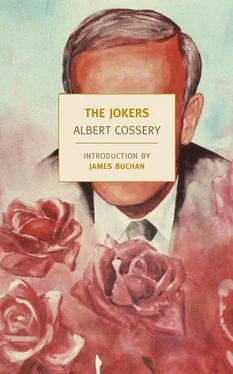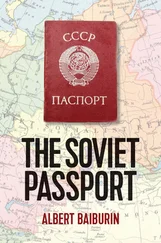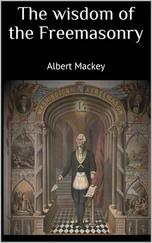With heavy hearts, dragging their feet as much as they could, the children succeeded in gathering all their belongings and left the classroom. But they didn’t go far; they just scattered into the narrow street, searching for dark corners not too far from the school. When the last student had left, Urfy stepped down from his desk and went over to Karim, who hadn’t budged from his seat.
“I didn’t expect you so early,” he said, by way of an excuse.
“I had nothing else to do,” Karim admitted. “And I couldn’t wait to read what you’d written. You’ve finished, I hope?”
“Just,” responded Urfy. He pulled a folded piece of paper from the inside pocket of his jacket and offered it to Karim: “Here, read.”
“You’re happy with it?”
“That’s a question to ask His Excellency the Governor. I am but his humble biographer.”
Wanting to indulge fully in the delight he anticipated from this reading, Karim assumed a comfortable position. Then he unfolded the paper, and what he read made him almost crazy with pleasure. A storm raged within him, it seemed, making him shake with insane, unstoppable laughter. Urfy hadn’t expected such a success; he was passably proud of the text but was still surprised. Some of the children, overhearing this bout of hilarity, crept out of the shadows of the nearby houses and spied on them through the basement windows. Seeing the beardless wonders preparing to jeer at them, Karim calmed down immediately. He wiped the tears from his cheeks and turned to the schoolmaster.
“It’s…sublimely grotesque,” he said, jubilation in check. “With the portrait above it, this will make a sensational poster!”
“Do you really like it?” asked Urfy.
“It’s…well…monstrous! I can’t wait to print it.”
“That’s your domain. But tell me: How do you know about printing?”
“By chance. I worked for a few months as a typesetter in a printshop. It was during the time when I wanted to live among the people. So I took different jobs.”
Urfy slumped onto a bench and stretched his legs, which were numb from inactivity. His gaze fell on his worn-out shoes, and he noticed something strange: one was more worn than the other. Briefly the mystery absorbed his mind, then he snapped back to attention and placed his hand fraternally on the young man’s shoulder.
“You were very young,” he said, “and you wanted to defend the cause of the people, is that it? And you got sent to prison.”
Urfy wasn’t asking a question but stating a simple fact. Everyone knew that defending the cause of the people led straight to jail.
“Naturally,” responded Karim. “Not that I regret it, because at the end of the day, it was in prison that I did get to mix with the people. See, in a factory you slave away like beasts — there’s never time to talk to your co-workers. All your conversations come back to the job, the awful pay, or the contagious misery that tears families apart. Nothing but painful subjects. But in prison there is downtime; you talk for the pleasure of getting to know one another. It’s funny, but a prison is less sinister than any workplace. Do you know that before prison I believed that ‘the people’ were sullen by nature and were somehow predisposed to misery and hardship? I never would have believed they were so lively, so full of humor. Yes, it was only in prison that I discovered this fundamental truth about our people — and realized that all my ideas about them had been false.”
Like any intellectual worthy of the name, Urfy had also fought for the people in his youth. But his unassuming air, his shyness and fear of attracting attention made him all but invisible to the police, who cared more about revolutionary looks than about actual revolutionary fervor. As a result, he’d never gone to jail. Now his curiosity was piqued; he realized he could learn from Karim’s experiences. He pressed Karim’s shoulder, encouraging him to continue.
“Tell me about it.”
“Well,” resumed Karim, “I’d seen the people as I’d wanted to see them, consumed by hatred and dreaming of revenge. And I wanted to help them carry out that revenge. I thought they were oppressed — but then I realized they were freer than I was. You wouldn’t believe how they laughed when I tried to explain that I was in prison because of my political ideas. It was a disaster; they thought I was an idiot. And I thought that by announcing my revolutionary position — how I was declared an enemy of the government — I’d earn their respect! How presumptuous! They’d always known that the government was a joke. But with all of my intelligence, I’d taken it seriously! I felt like an ass, playing the martyr to the working class. I was the only one who took the government seriously.”
“What a blow to your ego!” Urfy observed. “I bet you weren’t happy about it.”
“At first, no. But then my position began to seem silly. Soon I was laughing at everything, too, and in the end I was converted. And there was plenty to laugh about, believe me. It’s amazing the different characters you meet in prison! Their ideas about the government were fantastic — it was nothing more than a bunch of perverts. I loved everything I heard.”
“So prison was a decisive experience for you.”
“It was a start. And then I met Heykal.”
At the mention of Heykal, Urfy flinched. He withdrew his hand from the younger man’s shoulder and went back to contemplating his worn-out shoes. He thought of the pleasure Heykal must have felt hearing Karim talk about his time in prison; it was a story that would feed right into his endless appetite for the ironic. Urfy refused to be seduced by the strange buffoonery of the world; he actually fought against the temptation of enjoying it too much. He was well aware that the world was ruled by idiots and crooks who deserved no respect, but this gave him no pleasure; instead, he felt the full bitterness of the situation. Unlike Heykal, he would try at times to find a semblance of sincerity or justice in human institutions. Sadly, facts always proved Heykal right — he triumphed at every turn. And it wasn’t just that he triumphed; he shocked Urfy with his mania for seeking out the sick, risible side of every activity — as if to find the slightest grain of sanity in the whole comic routine might spoil his happiness. But Urfy was often incensed. In spite of everything he held on to a vague hope, and this condemned him to moral isolation from his friends — men whom he loved and admired.
“So,” he finally said, “tonight’s the night? You’ll be able to do it?”
“I’ll print enough,” Karim said, “for us to start postering tonight. But we should get going. I’ll need your help — to correct the proofs at least.”
“Where’s the printshop?”
“In a warehouse near the port that belongs to Khaled Omar. He should be coming with Heykal to meet us there this evening.”
“So Heykal’s coming?”
“For sure. He has to give us his final instructions. Did you know this is only the beginning, that Heykal has other projects in mind? Just thinking about it keeps me up at night!”
Karim’s enthusiasm for Heykal’s genius prevented him from noticing the look of sadness on the schoolmaster’s face. Karim was so happy to be caught up in the whole giant hoax that nothing else seemed to matter.
“There are things about him I don’t really understand,” said Urfy.
“Who are you talking about?”
“I’m talking about Heykal. Listen to me: these posters — I’m the first to recognize their destructive power. But I wonder if Heykal really wants to take down the governor. I wonder if, to be happy, Heykal doesn’t actually need the governor. What do you think?”
“What do we care if the governor’s taken down or not? That’s no business of ours. We just want to have fun — isn’t that right?”
Читать дальше












